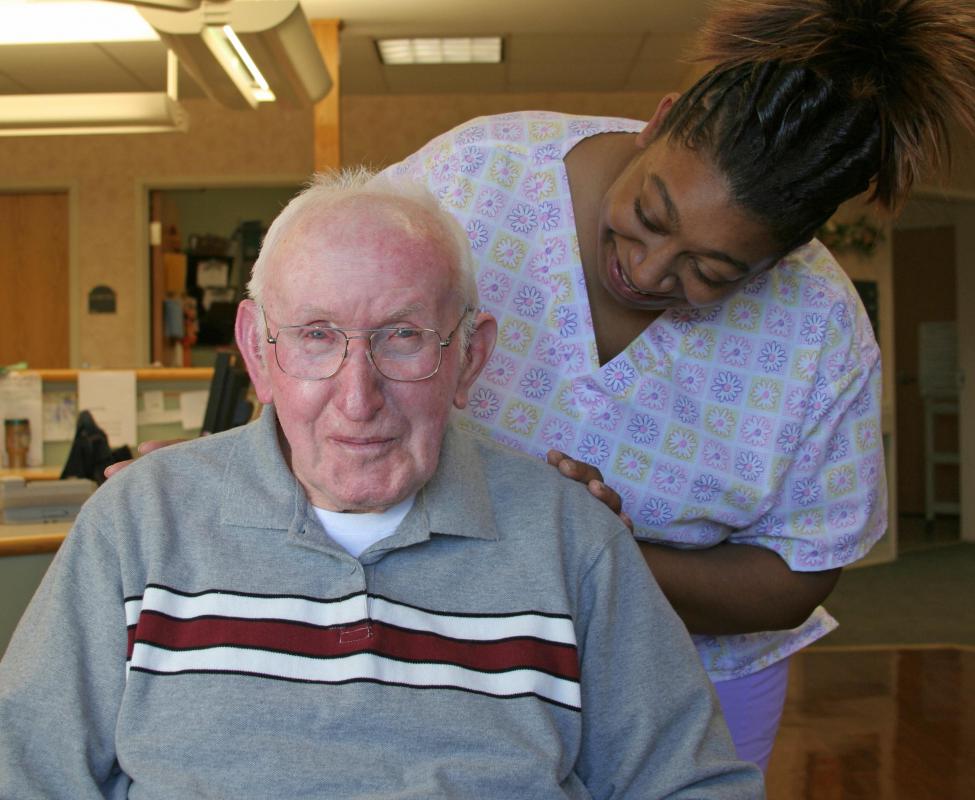At WiseGEEK, we're committed to delivering accurate, trustworthy information. Our expert-authored content is rigorously fact-checked and sourced from credible authorities. Discover how we uphold the highest standards in providing you with reliable knowledge.
What is Elder Care Law?
The World Health Organization (WHO) says that most developed countries have accepted the chronological age of 65 years as a definition of elderly. Elder care law refers to legislation that pertains to the issues faced by elderly people. This includes how they are cared for, the enforceability of agreements that they enter, and how medical insurers treat them. Violations of the legislation that pertains to the elderly may carry civil or criminal consequences depending on the laws that are broken.
Every state in the United States (US) has a body of elder care legislation. These laws are not consistent, however. This means that although there are attorneys who specialize in elder care law, they also tend to further specialize in their state’s body of laws. Even if the specifics of the legislation vary, there are certain topics that tend to be addressed to some degree.

For example, one of the main objectives of most elder care law is to protect these individuals from the abuse and exploitation of people who have assumed the responsibility as their caretakers. Elderly people can be vulnerable physically, mentally, and financially, making it easy for them to be taken advantage of. To prevent this from happening, there are often regulations outlining standards for health care facilities, assisted living facilities, and the staff at these businesses. If these individuals violate elder care law in certain ways, the result could be a loss of licensing, which would strip them of the ability to provide professional elder care.

Certain regulations address the behaviors of family members who act as caretakers. Elder care law also regulates the relationships between the elderly and individuals who they may be legally engaged with. This includes accountants, trustees, and those with power of attorney In many jurisdictions, for example, agreements and contracts that are entered into by elderly people are deemed unenforceable if they were made under unethical conditions or if they are grossly unfair.

This type of law also addresses what will happen when a person dies. Generally, elderly people are given the right to name an executor of their estate. They can also usually determine how they would like any remaining assets to be used or distributed.
Elderly people usually have more health care issues than younger people. The regulations that direct federal social services such as Medicaid and Medicare can be considered elder care law. Furthermore, this type of law commonly outlines the behaviors of private insurers. A lot of legislation is aimed at preventing insurance companies from unfairly treating individuals who have reached the latter stages of life.
AS FEATURED ON:
AS FEATURED ON:













Discussion Comments
I remember when I was taking care of an elderly relative, I noticed some things were coming up missing at his home. At first, he accused me of stealing from him, but I told him I wasn't that kind of person. I was just as concerned as he was about the thefts. I called a local elder law firm and asked someone there how to proceed.
He told me to set up surveillance equipment in the house, like a nanny cam or a stuffed animal with a camera inside. He also said I should make a list of everyone who has access to that house, especially relatives. It was a longer list than I thought. When I checked the cameras a week later, I saw his son take some cash out of a jar in the living room. I reported it to the local police and they later charged him with elder abuse for other things he did.
I have become one of my elderly mother-in-law's primary caretakers, and I've had to learn a few things about elder care law along the way. I haven't had to employ any eldercare attorneys yet, but I can see why some people in my position might.
I couldn't believe how many telemarketers and scammers feast on the vulnerability of elderly people. My mother-in-law tells me that her phone rings at least three times a day, and the person on the other end is usually trying to sell her another insurance policy or a new alarm system or a hearing aid. Sometimes I track down their numbers from her Caller ID and call them back. It's not a social call.
I do have power of attorney over her, but I've never used it to make any major decisions on her behalf. My wife and I did have to approve some treatments when she was in the rehabilitation center, but that was it. I have found that many institutions, like banks and utility companies, are very reluctant to accept the word of someone who claims to have power of attorney. I'm glad it's that way.
Post your comments